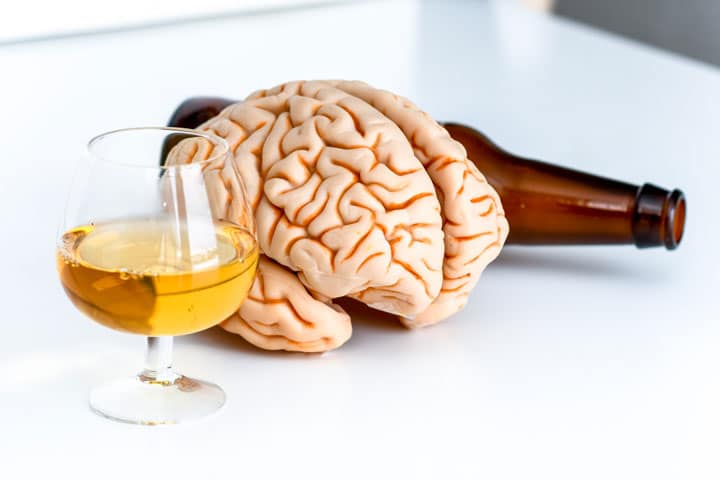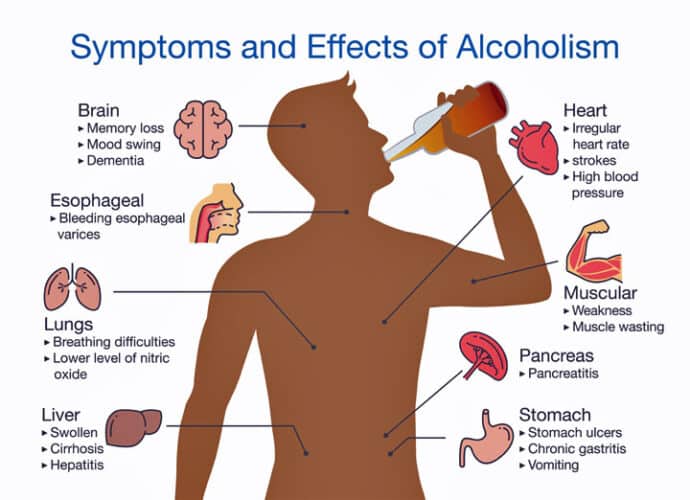The Dutch do not know how bad alcohol is for your health
On average, the Dutch have little knowledge about the health risks of alcohol. This can be concluded from a poll by PanelWizard commissioned by the Ministry of Health, Welfare and Sport and the Trimbos Institute.
The respondents scored an average score of 5,1. Less than 9 percent of the participants spontaneously mentioned that alcohol increases the risk of cancer. Only 5 percent of the respondents know that alcohol consumption increases the risk of breast cancer. Every year there are more than 1000 cases of breast cancer in which alcohol is the suspected cause.
Research outcomes
1339 Dutch people participated in the study. The questionnaire included knowledge questions about the harmful effects of alcohol on the body, health and society. A number of outcomes:
- More than half of the respondents scored an unsatisfactory. The average report mark is 5,1.
- Only 5 percent of the respondents know that alcohol consumption increases the risk of breast cancer.
- One in five people knows that alcohol also increases the risk of colon cancer.
- The influence on the brain is partly known: many participants do know that you can get Korsakov from excessive alcohol consumption. But only 3 percent mention the link with dementia spontaneously.
- It is well known that alcohol is bad for the liver. Almost nine out of ten participants know this.
- Only a third of the respondents are aware of the full advice issued by the Health Council in 2015: do not drink alcohol, or in any case, do not drink more than one glass a day.
- A quarter of the respondents intend to pay more attention to how much they drink next year.
Alcohol and health in numbers
In 2018, 1,1 million Dutch people drank excessively (more than 21 glasses per week for men and more than 14 glasses per week for women), 29.000 people sought help for their alcohol addiction, 18.000 people ended up in the emergency room with injuries, and still another 6000 people suffered from alcohol poisoning. 7,3 percent of all breast cancer cases (almost 15.000 in 2017) are related to alcohol. The same applies to 44,7 percent of all cases of esophageal cancer (about 2500 in 2018).
Health impact campaign
The research is a prelude to the start of a broad awareness campaign about the health effects of alcohol in 2020. It has been agreed in the National Prevention Agreement that 80 percent of the Dutch population will know the Health Council's guideline by 2040. If you want to take a break for a month, you can register with IkPas for their Dry January promotion via www.ikpas.nl. More than 6000 people have already signed up for it.




That is a message from the NPO news Dutch television from before yesterday.
Almost every day a certain disease or morbid event passes by on the screen.
If you do everything with measurements, there is nothing to worry about.
In the southern countries of Europe wine is drunk daily and nothing could be further from the truth that these people suffer from the aforementioned disorders and in Germany the beer has been flowing for decades.
What the Dutch state television wants to achieve with this is still a mystery.
The consequences of alcohol use have been studied by physicians.
That it is more or less suggested here that the government invents these diseases I find very bad and short-sighted.
And where is the evidence that these diseases do not occur in Germany?
I was blown away by these numbers. I was well aware that alcohol is very harmful and not only for the liver. I haven't used alcohol for years and only drank sporadically so it's no problem for me to stop completely. There are so many tasty drinks in the world that don't contain alcohol so you don't have to leave it for that. But I think this has fallen on deaf ears. Many do not want to stop because the addiction keeps them going and it is oh so tasty and you have to die of something has become a motto for many.
Hypocrisy at its peak.
If today I find a plant that does exactly the same as alcohol but without side effects, it will cost hundreds of thousands of euros for research and then I can put the humble request to the EU to allow it.
There it is immediately slammed down in consultation with the lobby. A good example is the best man who ever wanted to market the sweetener Stevia via the EU procedure.
The sugar industry does ensure that their trade remains protected, but in the end it turned out well, but not for the one who raised it.
Alcohol and sugars are responsible for a very large cost item, but head in the sand reigns.
The biggest victims of the system are the health-conscious, secondary and higher educated population group… also known as the cash cow.
@ Tino : the victims have no scars on their arm, but they do have a relatively large amount of cancer and other unwanted diseases as you will know for sure.
Of everything in moderation, no one has ever died.
Too much of everything.
My grandparents mainly drank young jenever with sugar and or brandy with sugar
Chewed tobacco and smoked pipe and cigar
Worked to death on the farm or on the small coastal trade.
My grandfathers both outlived their wives and they worked just as hard but drank and didn't smoke.
For myself, I don't smoke but I do drink 1 bottle of beer, 1 or 2 glasses of wine a day or 1 drink in moderation. All this in the evening and at home.
If I don't do that, my blood pressure and my blood thickness go through the ribbon and I have to take blood thinners.
Work an average of 6 to 8 hours a day as “farmer”, “gardener”, “maintenance technician”, “handyman”.
So you won't die right away.
The article also refers to Sweden with its state liquor stores. It is forgotten that Swedes, Finns and Norwegians are the biggest drunkards I know. Oh have worked a lot with swedes and norwegians.
What is forgotten in all Scandinavian statistics is that people distill alcohol and make wine at home.
I think that everyone can decide for themselves whether they smoke and/or consume alcohol, provided they do not hinder others.
It is only good that the youth are made aware of the dangers, they will probably have to continue until they are 75 before they may receive aow.
Finally you can see what alcohol is good for .
The only one that benefits from this is the state,
by the alcohol tax and the Heineken family.
But do you have 10 cannabis plants in your garden?
then you are already a criminal.
And as an ex-Austrian I know everything about alcohol ,
also in my family, they have vineyards
and wine cellars , where at the origin of the wine ,
already toxic , lethal gauze is created .
Or the tasty "Jagertee" war stroh rum with 80% alcohol inside.
Hard core people then drink it pure.
And also here in Thailand alcohol causes many problems,
not only at home , but also in traffic .
I'm just glad I don't drink alcohol myself
and my wife is also very happy with it,
because she has a brother who can't live without whisky
and regularly gets into trouble because of it.
Fortunately he is in Pattaya , very far away from us !
Do you know what is also bad for you stress from all the work that most Dutch people have to do until their 67th and for later generations even 70th.
But you hear very little about that because yes that is what the government wants you to do.